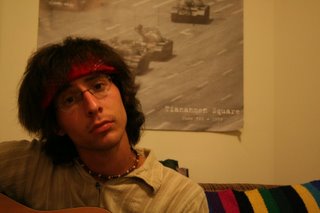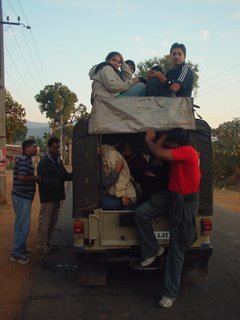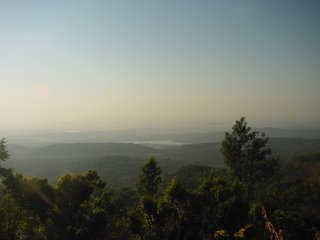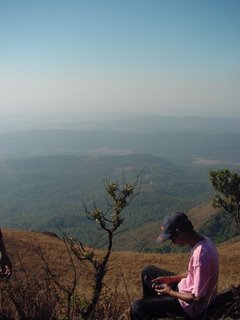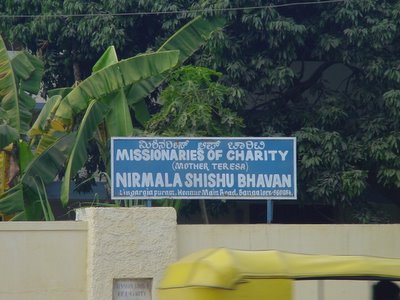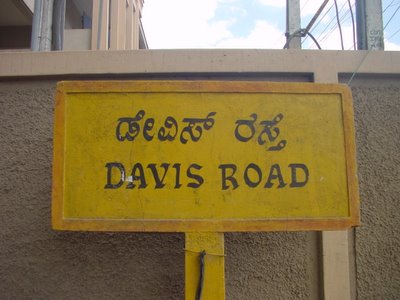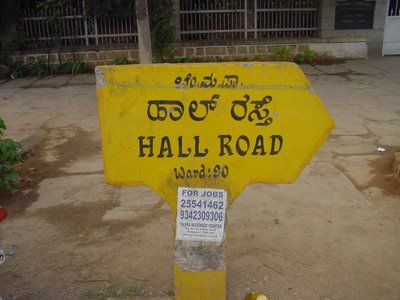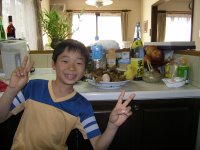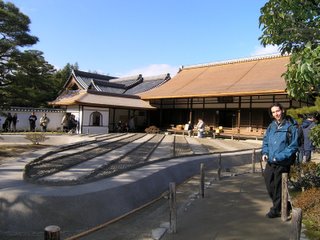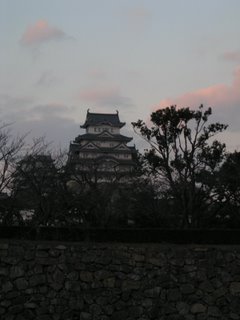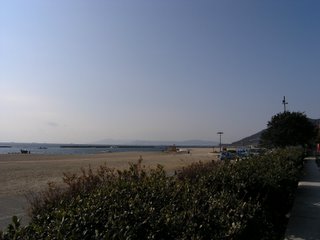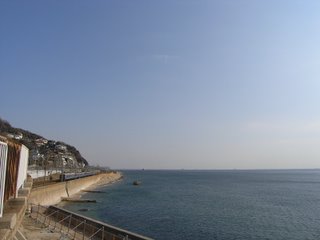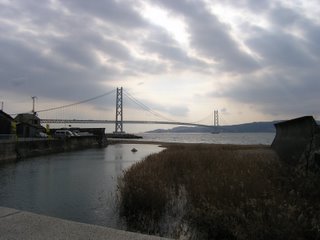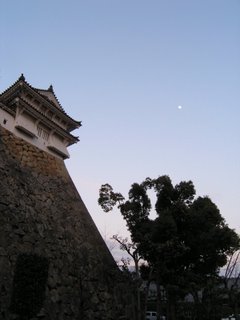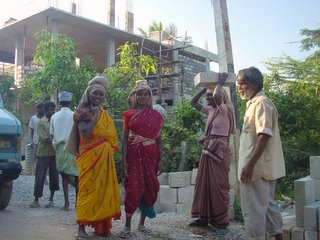The apostle Paul wrote this (Gal 2:10). The poor were a huge priority in his ministry. They were also a huge priority in the ministry of James, Peter and John, who are encouraging Paul here. At the most basic level, Paul encouraged the churches he founded to care for their poor members, taking collections for the widows etc. However, he did not limit charity to caring for those in their own communities (though that in itself was revolutionary). He also challenged the churches to care for the poor throughout the known world.
At the time, there was a famine in Judea - historians record many people dying of starvation. In response to this, Paul made visits to each of the churches he had established throughout the Roman world, and took a collection to provide for those suffering from the Judean famine. This must have been a shocking suggestion at the time. In ancient Rome, there were no NGOs raising money to support the poor in Africa, there weren't even homeless shelters. While charity among Jews was nothing new - there are numerous references in the old testament - it was certainly limited, and even more so throughout the Roman Empire . In fact, in the Roman Empire, philanthropy was esteemed and charity was ridiculed. Only the wealthy gave generously, and this was restricted to building public monuments, such as a town square etc. Beyond that, there were beggars; who were despised - viewed, in fact by both Roman and Jewish societies as cursed by God. It is within this culture that Paul suggests raising a collection, not for the poor of their community, nor even of their town, but rather for the poor living on the far side of the known world.
This part of Paul's ministry is usually glossed over, but I think it is very important to notice how groundbreaking it was. It has completely changed the ethics of the modern world.
The first century church was starkly different from it's surrounding culture in the way they cared for the poor. And it all began with Jesus. Jesus' message was far deeper and more glorious than simply 'provide for the poor'. He attacked societal notions of inequality, and the worth of a human. In the end (and this is of fundamental importance), he grants us each immeasurable worth as the children of God. This gospel must be at the heart of our understanding of ourselves and the poor, and must be the fundamental motivation for 'charity'.
Jesus begins his ministry with "Blessed are the poor", and ends it by giving his life to redeem us and give us each an immeasurable inheritance - as sons and daughters of the King. Jesus fundamentally challenged the notion of wealth as a reflection of how God had blessed an individual. In fact, he seems to suggest that wealth is actually given to us in order for us to give it to the poor. This is apparent from his story of the 'Talents', and more precisely in his suggestion: "One thing you lack: Go, sell everything you have and give to the poor, and you will have treasure in heaven. Then come, follow me." Wealth becomes worthless if selfishly used.
And he changed people, notably Zacchaeus who gives half his possessions to the poor when he encounters Jesus, or the early church, whose members held all things in common (the wealthy regularly sold their possessions to provide for the poor. See Act. Chpt. 2:42-47) But my question is, has Jesus changed us, the members of the modern church? Have we paid attention to Peter's only request of Paul: "All They asked was that we should continue to remember the poor, the very thing I was eager to do." Or has the modern church forgotten the poor?
Sadly, I think that we have. Unlike the early church, we do not stand out in stark contrast to the rest of our society in regards to our concern for the poor. We feel we are no longer responsible: the government is. (What a mistake we have made! How far we have strayed!)
Let me cite some statistics (It is a questionable source, but it probably gives rough estimates. www.generousgiving.org):
"American Christians give 2.6 percent of their incomes to the cause of Christ, only slightly better than the total giving of those who deny Him. Nor is the malaise in giving limited to the American church: God's people globally control a majority of the world's wealth but spend 98 percent of those resources on themselves. Are our priorities in order?"
(Ironically, American Evangelical Christians were more generous during the great depression.)
"A 2004 survey of 34 denominations showed that the average amount of total denominational budgets going to overseas missions was 2 percent." (notice, churches are roughly as generous as their members.)
I love this one: When asked "What would you do with an unexpected financial windfall?" 31 percent of Protestant pastors said they would build, expand or update their church buildings and facilities. 7 percent said they would give more to foreign missions and evangelism.”
Meanwhile, every 3 seconds one child dies of poverty. Measles alone kills over 500,000 African children each year (Red Cross), and 11,000,000 children die before their fifth birthday each year as a result of mostly preventable diseases, including malaria, diarrhea and pneumonia. As Jean Pierre Habicht says:
"Every single day--365 days a year--an attack against children occurs that is ten times greater than the death toll from the World Trade Center... We know how to prevent these deaths--we have the biological knowledge and tools to stop this public health travesty--but we're not yet doing it."
If our unwillingness to prevent preventable diseases is not distressing enough, one might be shocked to know how unequal the availability of basic necessities, such as food (or clean water), is:
“We live in a world where rich nations spend as much as the entire income of all the people in Africa subsidising the unnecessary production of unwanted food – to the tune of almost US$1 billion a day. While in Africa hunger is a key factor in more deaths than all the continent’s infectious diseases put together.
We live in a world where every cow in Europe has received almost US$2 a day in subsidies double, grotesquely, the average income in Africa. And Japanese cows nearly US$4.”
-
'Commission for Africa' suggests that we could reasonably tackle African poverty (in the long term) by making an intelligent 25 billion increase in annual aid , this is a relatively small cost, considering American evangelicals collectively earn more than 2.66 trillion per year .
For the first time in history we can eliminate these diseases and poverty . In fact, it is estimated that we could do so in Sub-Saharan Africa if American evangelicals alone gave less than 1% more of their income. Yet we're not doing it. We seem to have forgotten the very thing Paul was urged to remember.
Jesus has harsh words to say about this:
"When the Son of Man comes in his glory, and all the angels with him, he will sit on his throne in heavenly glory. All the nations will be gathered before him, and he will separate the people one from another as a shepherd separates the sheep from the goats. He will put the sheep on his right and the goats on his left.
"Then the King will say to those on his right, 'Come, you who are blessed by my Father; take your inheritance, the kingdom prepared for you since the creation of the world. For I was hungry and you gave me something to eat, I was thirsty and you gave me something to drink, I was a stranger and you invited me in, I needed clothes and you clothed me, I was sick and you looked after me, I was in prison and you came to visit me.'
"Then the righteous will answer him, 'Lord, when did we see you hungry and feed you, or thirsty and give you something to drink? When did we see you a stranger and invite you in, or needing clothes and clothe you? When did we see you sick or in prison and go to visit you?'
"The King will reply, 'I tell you the truth, whatever you did for one of the least of these brothers of mine, you did for me.'
"Then he will say to those on his left, 'Depart from me, you who are cursed, into the eternal fire prepared for the devil and his angels. For I was hungry and you gave me nothing to eat, I was thirsty and you gave me nothing to drink, I was a stranger and you did not invite me in, I needed clothes and you did not clothe me, I was sick and in prison and you did not look after me.'
"They also will answer, 'Lord, when did we see you hungry or thirsty or a stranger or needing clothes or sick or in prison, and did not help you?'
"He will reply, 'I tell you the truth, whatever you did not do for one of the least of these, you did not do for me.'
"Then they will go away to eternal punishment, but the righteous to eternal life."
Jesus is extremely harsh in this regard, but we must take him seriously. To be candid and honest, I have a great deal of trouble living up to this: I’m selfish and I don't do nearly enough for the poor. Writing this has been very difficult for me, because I sense my own hipocrisy. I'm writing this for myself as much as anyone else. In that light, Jesus encourages both myself and others with:
“Then Jesus said to his disciples: "Therefore I tell you, do not worry about your life, what you will eat; or about your body, what you will wear. Life is more than food, and the body more than clothes. Consider the ravens: They do not sow or reap, they have no storeroom or barn; yet God feeds them. And how much more valuable you are than birds! Who of you by worrying can add a single hour to his life? Since you cannot do this very little thing, why do you worry about the rest?
"Consider how the lilies grow. They do not labor or spin. Yet I tell you, not even Solomon in all his splendor was dressed like one of these. If that is how God clothes the grass of the field, which is here today, and tomorrow is thrown into the fire, how much more will he clothe you, O you of little faith! And do not set your heart on what you will eat or drink; do not worry about it. For the pagan world runs after all such things, and your Father knows that you need them. But seek his kingdom, and these things will be given to you as well.
"Do not be afraid, little flock, for your Father has been pleased to give you the kingdom. Sell your possessions and give to the poor. Provide purses for yourselves that will not wear out, a treasure in heaven that will not be exhausted, where no thief comes near and no moth destroys. For where your treasure is, there your heart will be also.”
I want to note a few things. Firstly, Jesus did not write this to western christians who worry about which luxury car to buy, or even students who worry about paying their tuition, but to people who's financial worries actually did consist primarily of being able to feed and clothe themselves. Nevertheless, his conclusion is that we sell our possessions and give to the poor.
Secondly I think he is saying something very deep when he suggests that we provide purses for ourselves that do not wear out. I really think that I am limiting myself by being selfish. If I were to trust God, and give what I have - both time and money... I would be infinitely richer. I would have fewer worthless worries, and a clearer sense of my worth, and the worth of those around me. I would enjoy what I have more - and in particular, I believe the relationships I have would be of more value to me... Especially my relationship with God.
I find that I'm often closest to God when I'm most in need of him. Sadly, since I'm not voluntarily dependent on him (as Jesus seems to suggest I should be), he often has to create difficult situations for me, which force me to crawl back to him. I believe that if I really trusted God with my life, giving virtually all I had to him (and to the poor), and becoming completely dependent on him... I would inevitably be closer to him, and the closeness would be sweeter and fuller and more enriching and vitalizing than that which I find when I crawl back to him. I want that. I want to trust and depend on God... I've tasted it, and I've never felt so alive. In contrast, it's painful when then only time I come to him is under the forced situation of a difficulty in my life. Why am I such a fool?
There's one final thing I would like to discuss... And it's the following verse: "You are the light of the world. A city on a hill cannot be hidden. Neither do people light a lamp and put it under a bowl. Instead they put it on its stand, and it gives light to everyone in the house. In the same way, let your light shine before men, that they may see your good deeds and praise your Father in heaven."
I want to be honest here... It has been painful to see how little the church seems to care for the poor (not that I'm any better). Sometimes, when I attend church, I get this horrible sensation: it's a terrifying sense of a loss of hope, of hope draining from me, like lifeblood being let... I ask myself how concerned these people are for their neighbors? Is there any love here? Is God alive in them, or are they just giving him lip-service? (And I should add that, at these moments I feel that I am just giving God lip-service). Faith without works is dead; and it feels that way.
I feel like I have lost a lot of faith in God because of the apparent lethargy of his church, Christ's body in the world. I sometimes question God's ability to rescue the poor, the destitute and the oppressed. I question the message of salvation when visible manifestations of it, such as healing the sick and feeding the hungry, are not present. It is hard to believe in God's saving love and omnipotence, when we seem to preach the gospel to poor and then let their child die of diarrhea.
I recognise that I should not blame others for my lack of faith - I know that I must be the first to repent. I merely stated this as I wish to suggest that the poor will feel the same as I sometimes do about the greed of the church, and that we do empty the gospel of it's power when we forget the very thing Peter urged us to remember: the poor.
I think the modern church needs to learn a lesson from the early church. We should trust God with our entire selves. We should give him everything, and our finances are often the crucial sacrifice we need to start with. We need to give ourselves to God, and to the proclamation of the gospel in word and in deeds... We need to depend totally on God for everything... and God will come and heal our land, and heal our broken souls... and give us a deep richness of life, in him. I need to be the first to give myself up to him, to be cleaned by him... (he will forgive me, I know he loves me)... and to follow him...
Oh God.. help me! Please, those who agree, please encourage me!
warmly, - dave
